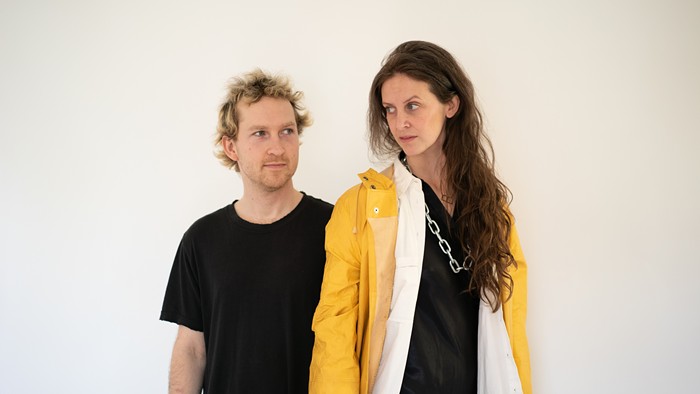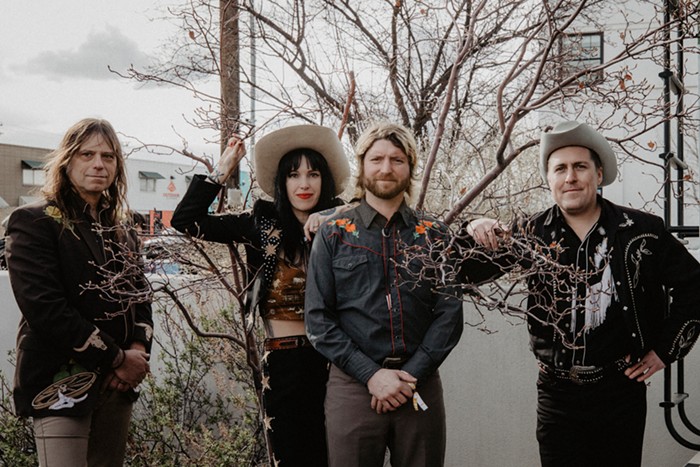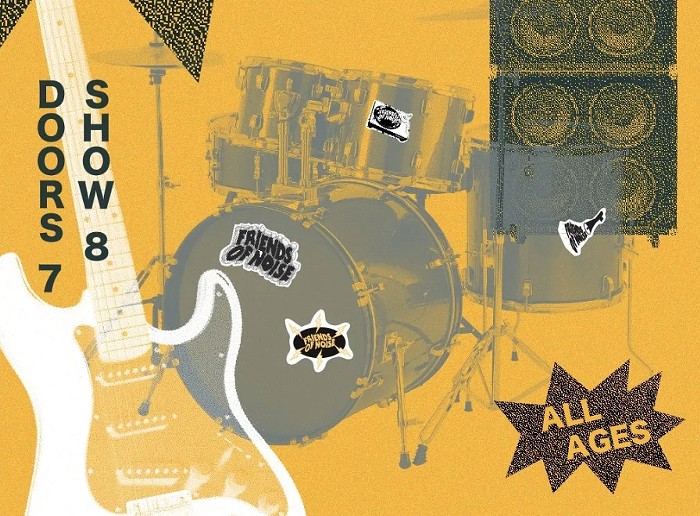“WHAT A WASTE my life would be without all the beautiful mistakes I’ve made,” writes Alice Bag in her book Violence Girl: East LA Rage to Hollywood Stage, a Chicana Punk Story. From pioneering Los Angeles punk to authoring two books, teaching literacy, and leading an archiving project for female musicians, Bag has lived many lives in her 58 years. Now she’s celebrating the release of her self-titled solo debut, the culmination of nearly 40 years in music.
Taking the stage in paper grocery sacks and sharing bills with bands like X, the Germs, and the Weirdos during LA punk’s formative years in the mid-’70s, Bag led loose and raunchy sets as the frontwoman of the Bags. She recalls the emerging scene’s inclusivity and the sense of unity that bonded those who considered themselves outsiders to mainstream society. But Bag renounces the notion that punk was built by and for cis white men.
“It’s inaccurate and damaging to the legacy of punk, because one of the things that sets punk apart is the fact that there were so many women, queers, and POC [people of color] involved in every aspect of the early scenes,” she says. “People whose voices had barely been heard in American popular music were suddenly making noise, expressing [themselves], and finding a receptive, enthusiastic audience.”
Bag’s scalding vocals became the group’s signature sound, and were a cathartic channel for her to unleash rage that stemmed from growing up in an abusive household.
“So much of what drove me had to do with venting rage,” she says. “Growing up, my house was a microcosm of society at large. It was a little patriarchy where my father made the rules, and punishment was swift for those who did not follow them. I lived for the moments when my father was challenged by any woman.”
After the Bags’ split in 1979, Bag turned her focus to education as a bilingual teacher. But she says the transition from punk venues to classrooms felt natural: “The experience of being part of the punk community transformed me [and] made me feel powerful. I realized that I could shape my own world and that feeling stayed with me.”
Witnessing the struggles of her undocumented students while teaching in Arizona during the era of the discriminatory Support Our Law Enforcement and Safe Neighborhoods Act (SB 1070) directly inspired “Inesperado Adios,” the somber Spanish-language closing track on her new record. In the song, Bag recounts a particular student’s story, and chillingly recalls, “Students had been brought over by coyotes, and [were] given up by their families to be transported [and] met by relatives in the United States. The whole period where they’re just with strangers who are transporting them to make money is traumatic for children.”
Bag was born in the United States, but has experienced firsthand the bias faced by children of non-European immigrants, and recalls how her own immigration status has been questioned on the basis of her skin color.
“I view different situations through different lenses,” she says. “At times, I am forced to view a situation from a feminist perspective, other times as a person of color, other times as queer—all of me is present all the time, but some components of my identity are more visible depending upon what the situation demands. Being Chicana and being punk are two things that politicized me. Even though I wasn’t part of an organized Chicano activist group, I realized there was a struggle for social justice. As a punk, I learned the value of an organized community and the power of music and art to change people from within. Eventually, my punk values informed my Xicanisma, and my Xicanisma shapes my particular expression of punk.”
Alice Bag reveals this unique blend of Xicanisma and punk with punchy, political tracks that combat rape culture, physical assault, and Monsanto. Bag has played in nearly 30 bands since forming the Bags, including Cholita and Las Tres, and her music ranges from soul to death rock to traditional Mexican folk. But 2016 is the first time she’s released anything solo, which she explains as “new, thrilling, and a little scary.”
While producing music for San Antonio’s FEA, Bag says she was inspired to strike out on her own. So she quietly signed herself up for a slot to record at Station House Studio in Echo Park right after booking time for the Latinx riot grrrl band. Launching a Kickstarter campaign to raise funds for the album’s release was difficult for Bag, who was taught that it’s poor form to ask for help, but the financial freedom allowed her to create an album exactly how she wanted.
She cites overcoming her own “personal hang-ups” as the biggest obstacle that faced the record’s release, and now sees crowdsourcing as a means for building community. Alice Bag (and all of her work, really) centers on the idea that storytelling from every perspective is extremely necessary.
“I feel that my story and the stories of people like me matter and should be included,” Bag says. “It’s important to document your own history, so I took it upon myself to do just that.”


















